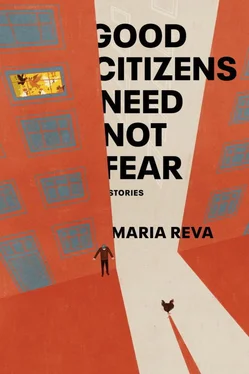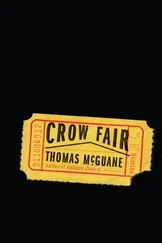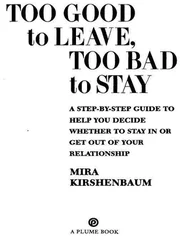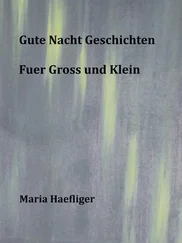Maria Reva - Good Citizens Need Not Fear - Stories
Здесь есть возможность читать онлайн «Maria Reva - Good Citizens Need Not Fear - Stories» весь текст электронной книги совершенно бесплатно (целиком полную версию без сокращений). В некоторых случаях можно слушать аудио, скачать через торрент в формате fb2 и присутствует краткое содержание. Город: New York, Год выпуска: 2020, ISBN: 2020, Издательство: Doubleday, Жанр: Современная проза, humor_satire, на английском языке. Описание произведения, (предисловие) а так же отзывы посетителей доступны на портале библиотеки ЛибКат.
- Название:Good Citizens Need Not Fear: Stories
- Автор:
- Издательство:Doubleday
- Жанр:
- Год:2020
- Город:New York
- ISBN:978-0-38554-529-7
- Рейтинг книги:3 / 5. Голосов: 1
-
Избранное:Добавить в избранное
- Отзывы:
-
Ваша оценка:
- 60
- 1
- 2
- 3
- 4
- 5
Good Citizens Need Not Fear: Stories: краткое содержание, описание и аннотация
Предлагаем к чтению аннотацию, описание, краткое содержание или предисловие (зависит от того, что написал сам автор книги «Good Citizens Need Not Fear: Stories»). Если вы не нашли необходимую информацию о книге — напишите в комментариях, мы постараемся отыскать её.
Good Citizens Need Not Fear: Stories — читать онлайн бесплатно полную книгу (весь текст) целиком
Ниже представлен текст книги, разбитый по страницам. Система сохранения места последней прочитанной страницы, позволяет с удобством читать онлайн бесплатно книгу «Good Citizens Need Not Fear: Stories», без необходимости каждый раз заново искать на чём Вы остановились. Поставьте закладку, и сможете в любой момент перейти на страницу, на которой закончили чтение.
Интервал:
Закладка:
“I read it in one of your books last night, while you were asleep,” Zaya said. “But I already knew it. A sanitarka used it to teach us tractor parts.”
“Tractor parts!” He found himself yelling. “It isn’t about tractor parts.”
Zaya descended from the chair and slumped down into it, arms hanging between thighs. Her expression was mean and satisfied; the insult had hit its mark.
“Sit up straight.” He threw back his shoulders as an example, to no effect. “The sanitarki taught you tractor parts but not the order of the days of the week?”
“Want me to recite the one about gears?”
He put out a hand to stop her. He realized he preferred to think no one read his poetry anymore.
Makeup proved to be a challenge. Konstantyn hoped that, by virtue of being a girl, Zaya held some innate ability to apply it. From the depths of the bathroom cabinet he dug out a nub of lipstick, a tiny jar of flesh-colored paste, a tube of mascara—remnants from the rare times he and his wife had gone out. He placed the objects on the kitchen table, in front of Zaya. She uncapped the mascara, smelled the unsheathed brush. He realized she hadn’t a clue what it was.
“To darken your eyelashes. Let me,” he offered, taking the brush. He instructed her to look up at the ceiling, open her mouth.
“Why?”
He didn’t know. It was how his wife had always arranged her face to apply mascara. “Just don’t blink.” But when he brought the brush to her eye, she threw her head back as though he held a weapon. He tried again, with the same result.
“Do it to yourself first,” she ordered.
“It’s not for me.”
She crossed her arms. “You have eyelashes.”
He sighed, and held up the compact mirror. He watched himself bring the brush to his right eye. The lashes were thin and straight and stuck downward. He’d never paid attention to them before. He applied the clumpy purplish black paste. A few times he missed, and grazed his eyelid. He tried to wipe the marks off but ended up smearing them further, giving himself a black eye.
“See? Nothing to it.” He smiled meekly, holding up his hands to prove he was unarmed.
Zaya leaned in to study his work. Her brown irises were flecked with amber, like sparks about to ignite. He cast down his eyes to avoid them. To his relief, she took the brush, but instead of using it on herself she lifted it to his left eye. Now he was the one who wanted to squirm from the brush. He willed himself to keep still, to show that he trusted her even though he didn’t, not quite.
As she worked, the heel of her hand rested on his cheek like a cool stone. He held his breath, immobilized by her touch. He tried to remember when he had last been in such proximity to another person, and his mind slid back in time, trying and failing to latch onto some distant memory.
“Your eyes are all wet,” she remarked.
“Must be mascara in them.”
“Sorry,” she said. “It’s leaking.” She pressed the back of her hand against his cheek to catch it.
“How do I look?” he asked.
“Like Miss USSR.” She handed over the brush. “Just don’t take my eye out.”
They proceeded this way, taking turns with the eye shadow—a metallic powder that clung to the mascara like mold—and the lipstick, which exuded a waxy fragrance, faintly petrochemical.
This left the foundation. He suspected he had mixed up the order of operations. He opened the jar of paste, which contained a circular sponge. When it was his turn, he dabbed it over Zaya’s face haphazardly. The color was a shade pinker than her skin, but the effect wasn’t bad—it made her face seem flushed, a tad more alive. When he passed over the thick scar below her nose, she flinched. He could see white specks where the boot maker’s needle had pierced the skin; the strokes had been quick and indelicate. Since the woman had taken the time to sew up a child’s face, he thought with a pang of anger, why not take a few extra minutes to do it well? If he had been there—
The thought went unfinished. He hadn’t been there. He wouldn’t have taken in the child, in the first place.
He and Zaya stood in front of the bathroom mirror, appraising the colors on their faces. Their shadowy eyes and smeared lips made them looked vaguely related.
The next day, Zaya and Konstantyn took a two-car elektrichka from Kirovka to Kiev, then an overnight train to Moscow. Zaya’s distrust of cars did not seem to extend to other forms of transportation. In fact, it was Konstantyn who was nervous, breaking out in a sweat every time the conductor made rounds to check tickets. Once or twice, on previous trips, Konstantyn had seen men asked to provide a birth certificate for an accompanying child or teenager. Yet no one questioned him. Perhaps when the conductors saw the young woman sitting beside him, long silver locks spilling from her fur hood, heeled boot pumping impatiently, they assumed she was related to him, and not by blood. When they arrived in Moscow the next morning, the arched iron and glass roof of the Kievsky Terminal slid over them like a long net.
The Yuon Palace of Culture was a granite amalgamation of angles and planes, as if a committee of architects had failed to agree on a single design and so combined several. Konstantyn and Zaya edged along the Palace’s jagged perimeter until they came to a back door. Locked, as expected. But within a few minutes a rotund middle-aged man rushed out clutching a broken stiletto, and the pair slipped inside.
Chaos greeted them in the narrow corridor. People were running about, barking commands at one another. A heavily made-up teenager in a white slip, undoubtedly one of the contestants, limped in circles, sobbing. Another girl, hair set in pink rollers, was dry-heaving over a dustbin. Konstantyn observed, with some satisfaction, that no one seemed to know what they were doing or where they should go. It was true that his pageant had been much smaller, but its lead-up had been incomparably calmer, better organized.
He kept an eye out for the Minister of Culture, for the wide-jawed, handsome face that occasionally graced television broadcasts and newspapers. Konstantyn suspected, and hoped, she wouldn’t condescend to oversee the tedious backstage details.
As they pushed through the corridor, Konstantyn caught envious glances at Zaya’s thinness. A tall blonde, who was slicking Vaseline onto the teeth of her daughter—a taller, blonder version of herself—asked Zaya which diet she kept. “The internat diet,” Zaya answered. The mother turned away, as if the girl had uttered a curse word.
A small, quick-moving woman with a glossy folder clamped under her arm intercepted Zaya and Konstantyn.
“Changing room?” he tried.
The woman shot Zaya a disapproving glance. “All contestants are accounted for.”
When Konstantyn asked if it wasn’t possible to accommodate another, the administrator said of course it wasn’t possible, these girls had been vetted in their respective republics before being sent here from all over the Union. Konstantyn probed his mind for useful people he knew, or could pretend he knew; it occurred to him that one of the judges was a composer who, according to the lore of the intelligentsia, coded his favorite granddaughter’s name into his music. Konstantyn invoked that name now, in diminutive form, as if he personally knew her. Surely the granddaughter—and by extension, her famous grandfather, and by extension, the Minister of Culture—would be crushed if the girl’s best friend was not allowed to compete? The administrator stared at Konstantyn with indignation. He knew the woman didn’t believe him, but he also knew she wouldn’t be willing to risk the chance his story was true. She pulled her folder out from under her arm and opened it. “You’re in luck,” she conceded, “we had a contestant pull out after she twisted her knee.” She unclipped a pen from her shirt collar, and turned to Zaya. “Age?”
Читать дальшеИнтервал:
Закладка:
Похожие книги на «Good Citizens Need Not Fear: Stories»
Представляем Вашему вниманию похожие книги на «Good Citizens Need Not Fear: Stories» списком для выбора. Мы отобрали схожую по названию и смыслу литературу в надежде предоставить читателям больше вариантов отыскать новые, интересные, ещё непрочитанные произведения.
Обсуждение, отзывы о книге «Good Citizens Need Not Fear: Stories» и просто собственные мнения читателей. Оставьте ваши комментарии, напишите, что Вы думаете о произведении, его смысле или главных героях. Укажите что конкретно понравилось, а что нет, и почему Вы так считаете.












